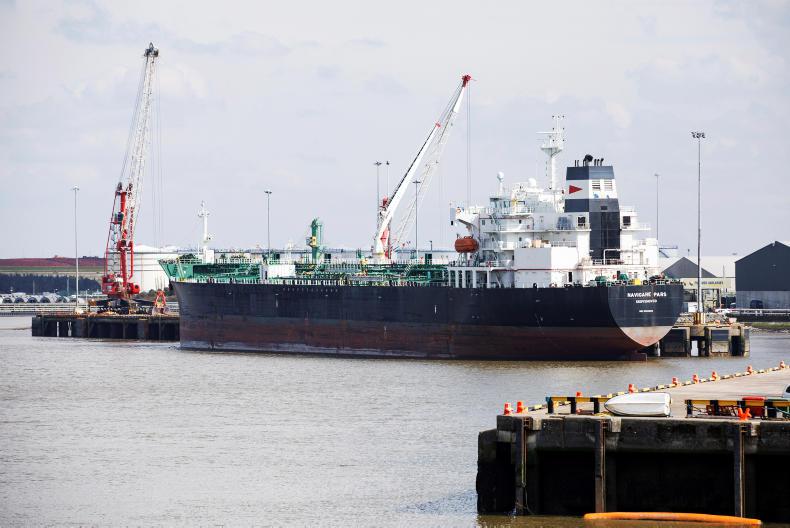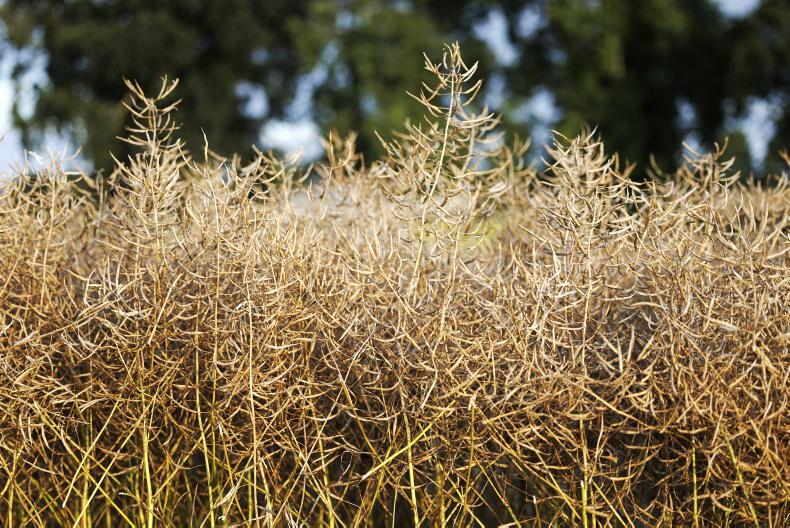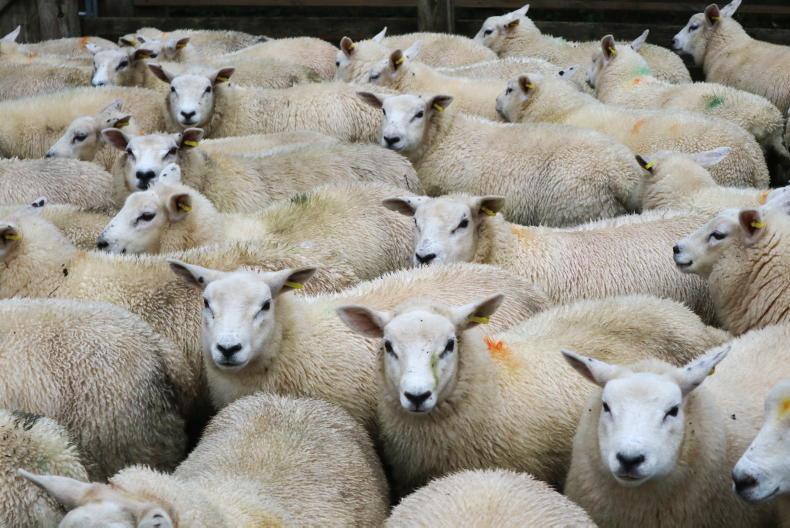DAERA officials have not had enough time to get the infrastructure, IT systems, and people in place to manage trade flows coming into NI once the Brexit transition period ends on 31 December 2020.
At last Thursday’s Agriculture committee meeting at Stormont, DAERA permanent secretary Denis McMahon explained to MLAs that it was 20 May 2020 before guidance was published by the UK government on how it intends to implement the NI protocol.
Under the protocol, NI follows EU rules for goods, allowing trade to move unhindered across the Irish border. But to protect the EU single market, checks will be required on goods entering NI.
So in effect, DAERA was given seven months to get physical infrastructure in place at Larne, Belfast, Warrenpoint and Foyle Ports as well as local airports – a “monumental challenge”, said McMahon.
We need the UK government with the EU to help us make this work for the benefit of everyone
A £45m business case has been approved, and the process of appointing building contractors to construct new permanent facilities has begun, but it is likely to be “many months after Christmas” before the work is complete, officials told MLAs.
As a result, DAERA is looking at contingency plans to manage trade from 1 January 2021, involving the use of temporary accommodation and paper-based solutions.
But the clear message from officials is that unless there is flexibility shown by the UK and EU, they will not be able to keep control of the situation.
“We need the UK government with the EU to help us make this work for the benefit of everyone who lives and works in NI,” said McMahon.
Bottleneck
The real bottleneck is potentially around supermarket traffic coming from central distribution centres based in Britain, with some individual consignments including as many as 400 different products. Each product potentially requires its own individual health certificate to enter NI.
However, NI chief vet Robert Huey told MLAs that the argument has been put to the European Commission that there is no need to check these consignments from 1 January 2021, given that UK standards will not have changed overnight, so the risk is extremely low.
Supermarkets
“About half of the consignments coming in are supermarket lorries. Without that flexibility it is going to be very difficult, because that will swamp us with everything else,” he said.
He also said that DAERA is in the process of recruiting around 100 additional inspectors to work at ports, but without all the IT systems in place by the end of the year, it will be necessary to pull in other staff to help with paperwork. That could mean staff being redeployed from the likes of the TB control programme, said Huey.
McMahon caught in ‘impossible situation’
At last week’s Stormont Agriculture meeting, DAERA permanent secretary Denis McMahon confirmed that Department officials are effectively going against the wishes of their Minister, Edwin Poots, by progressing with plans to put in inspection infrastructure at NI ports.
I’m caught in an impossible position
McMahon told MLAs that Minister Poots was opposed to the move for political reasons. But he also said that the Minister had “some legitimate concerns” about the impact checks on goods arriving from Britain could have on NI business and local consumers.
“I’m caught in an impossible position. We do work to Ministers, however, I am absolutely required to comply with the law,” said McMahon.
Fulton dismissive of
legislation on farm prices
Among the senior officials in front of the Agriculture committee last week was DAERA deputy secretary Norman Fulton.
He was asked whether the proposed Internal Market Bill being brought forward by the UK government (which aims to prevent market distortion within the UK) would prevent NI from legislating for minimum farmgate prices.
He suggested that the Bill could scupper the legislation, but went on to express “much more deep seated concerns” around whether minimum farm gate prices in NI would fall foul of state aid rules, and would undermine the ability of NI agri-food to do external trade.
A number of farm lobby groups have made the case for minimum pricing legislation, and have been pressing MLAs to take forward a Bill through Stormont.
Read more
Odds on a UK-EU trade deal put at 55%
Brexit: hauliers warn time is of the essence
DAERA officials have not had enough time to get the infrastructure, IT systems, and people in place to manage trade flows coming into NI once the Brexit transition period ends on 31 December 2020.
At last Thursday’s Agriculture committee meeting at Stormont, DAERA permanent secretary Denis McMahon explained to MLAs that it was 20 May 2020 before guidance was published by the UK government on how it intends to implement the NI protocol.
Under the protocol, NI follows EU rules for goods, allowing trade to move unhindered across the Irish border. But to protect the EU single market, checks will be required on goods entering NI.
So in effect, DAERA was given seven months to get physical infrastructure in place at Larne, Belfast, Warrenpoint and Foyle Ports as well as local airports – a “monumental challenge”, said McMahon.
We need the UK government with the EU to help us make this work for the benefit of everyone
A £45m business case has been approved, and the process of appointing building contractors to construct new permanent facilities has begun, but it is likely to be “many months after Christmas” before the work is complete, officials told MLAs.
As a result, DAERA is looking at contingency plans to manage trade from 1 January 2021, involving the use of temporary accommodation and paper-based solutions.
But the clear message from officials is that unless there is flexibility shown by the UK and EU, they will not be able to keep control of the situation.
“We need the UK government with the EU to help us make this work for the benefit of everyone who lives and works in NI,” said McMahon.
Bottleneck
The real bottleneck is potentially around supermarket traffic coming from central distribution centres based in Britain, with some individual consignments including as many as 400 different products. Each product potentially requires its own individual health certificate to enter NI.
However, NI chief vet Robert Huey told MLAs that the argument has been put to the European Commission that there is no need to check these consignments from 1 January 2021, given that UK standards will not have changed overnight, so the risk is extremely low.
Supermarkets
“About half of the consignments coming in are supermarket lorries. Without that flexibility it is going to be very difficult, because that will swamp us with everything else,” he said.
He also said that DAERA is in the process of recruiting around 100 additional inspectors to work at ports, but without all the IT systems in place by the end of the year, it will be necessary to pull in other staff to help with paperwork. That could mean staff being redeployed from the likes of the TB control programme, said Huey.
McMahon caught in ‘impossible situation’
At last week’s Stormont Agriculture meeting, DAERA permanent secretary Denis McMahon confirmed that Department officials are effectively going against the wishes of their Minister, Edwin Poots, by progressing with plans to put in inspection infrastructure at NI ports.
I’m caught in an impossible position
McMahon told MLAs that Minister Poots was opposed to the move for political reasons. But he also said that the Minister had “some legitimate concerns” about the impact checks on goods arriving from Britain could have on NI business and local consumers.
“I’m caught in an impossible position. We do work to Ministers, however, I am absolutely required to comply with the law,” said McMahon.
Fulton dismissive of
legislation on farm prices
Among the senior officials in front of the Agriculture committee last week was DAERA deputy secretary Norman Fulton.
He was asked whether the proposed Internal Market Bill being brought forward by the UK government (which aims to prevent market distortion within the UK) would prevent NI from legislating for minimum farmgate prices.
He suggested that the Bill could scupper the legislation, but went on to express “much more deep seated concerns” around whether minimum farm gate prices in NI would fall foul of state aid rules, and would undermine the ability of NI agri-food to do external trade.
A number of farm lobby groups have made the case for minimum pricing legislation, and have been pressing MLAs to take forward a Bill through Stormont.
Read more
Odds on a UK-EU trade deal put at 55%
Brexit: hauliers warn time is of the essence










SHARING OPTIONS